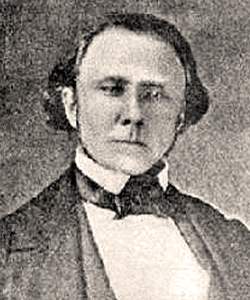William Holland Thomas (American National Biography)
Scholarship
The Civil War broke Thomas physically, mentally, and financially. The erratic behavior and occasional violent outbursts that his contemporaries noted before the war became so serious that in 1867 his wife committed him to the state asylum in Raleigh. For the rest of his life, with short exceptions, Thomas lived in hospitals for the mentally ill. Ironically, from his hospital room Thomas made one final and very significant contribution to his Cherokee people. Visited at the Western Insane Asylum in Morganton in 1890 by James Mooney, a young ethnologist from the Smithsonian Institution, Thomas told the full story of his life among the Indians and provided intimate information about their culture. He died at the asylum three years later. Although Mooney drew the information he used in his Myths of the Cherokee (1900) from many other sources, much of their important culture and history might have been lost without Thomas's contribution. The Eastern Band of Cherokees would not have continued to exist in North Carolina had it not been for the work of Thomas, and his dream for the economic development of western North Carolina was embraced by subsequent generations who pushed it to success.
E. Stanly Godbold, "Thomas, William Holland," American National Biography Online, February 2000, http://www.anb.org/articles/20/20-01398.html.



